South Korea: I can now add real faces to some of the voices in my online classes
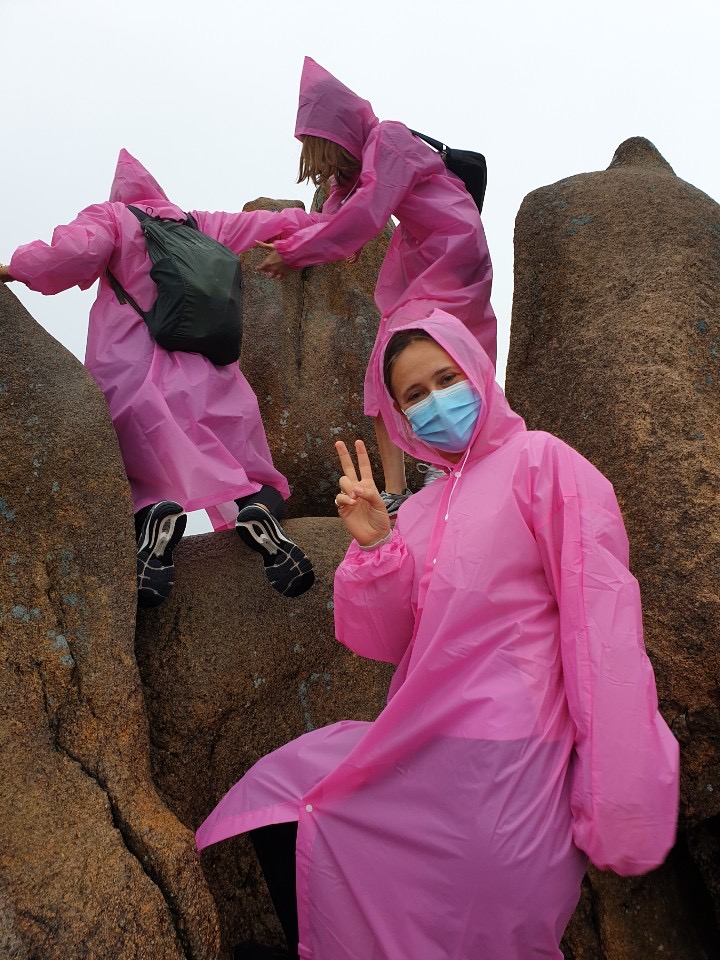
(Photo: Frederikke Viltoft Mygind)
I am slowly but surely adjusting to my new everyday life in Seoul. The standard of my room is a nice middle way between being at home and the hostels I experienced during my two sabbatical years.
The common areas and shared facilities are, of course, less occupied and dirty, due to COVID-19, which is now a good thing because the cleaning lady that used to work here recently quit her job, and the manager can’t find a new one because they are afraid of getting corona from foreigners, so now the manager is doing all the cleaning.
This empathizes how ignorance is bliss and what can easily now seem like normal everyday life to me – as I haven’t experienced it any other way – is still very far from normal.
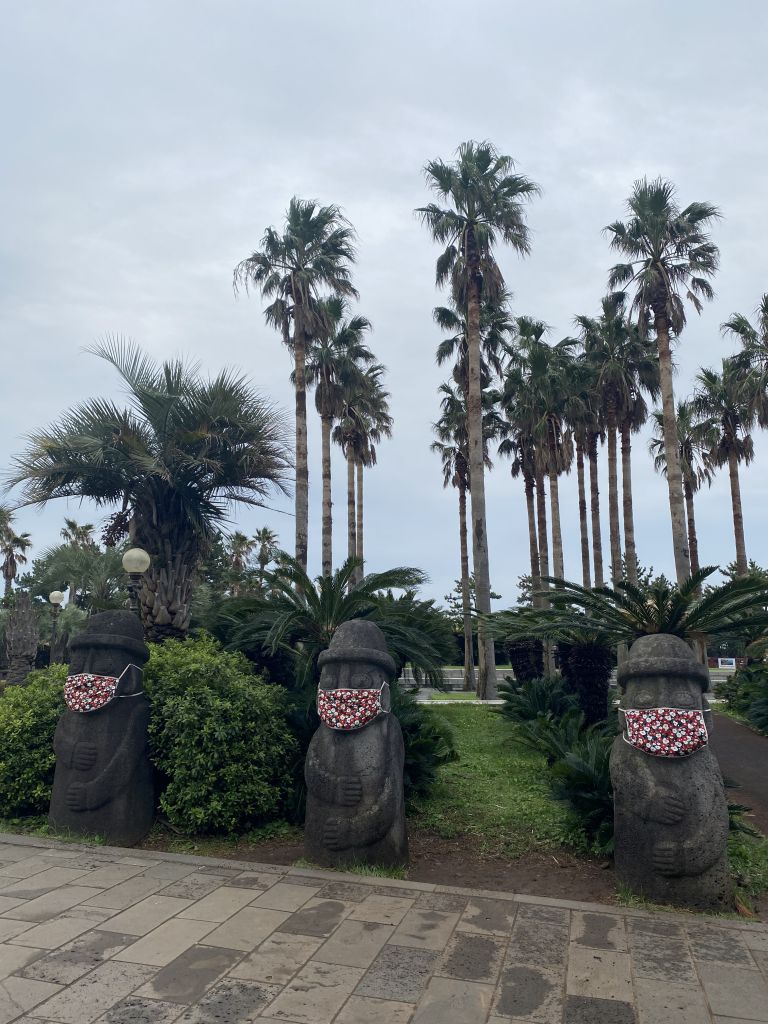
(Photo by Frederikke Viltoft Mygind)
My everyday life is still influenced by the social distancing measures in place. However, we have now gone down to level 2 in social distancing, which means that restaurants and shops are now allowed to operate during normal hours as long as they comply with the government rules that include customer entry logs with the time, date, name, temperature, phone number and address of everyone that enters.
As a result of the reduction in social distancing measures, we have been able to do some of the postponed initial introductory meetings with our Korean buddies. They have introduced us to some of the local bars and places to go out and sing karaoke close to the school.
The fact that we are now more able to meet up in person has also given more of a community feeling among all the exchange students from different dorms and the buddies. I can now add real faces to some of the voices in my online classes.
The online classes will continue until at least after the Chuseok holiday, which is from the 30 August to 4 September. This is the Korean thanksgiving where everyone travels across the country to spend time with their families. The government is worried about the big risk of a lot of new infections, so they are keeping the current measures in place.
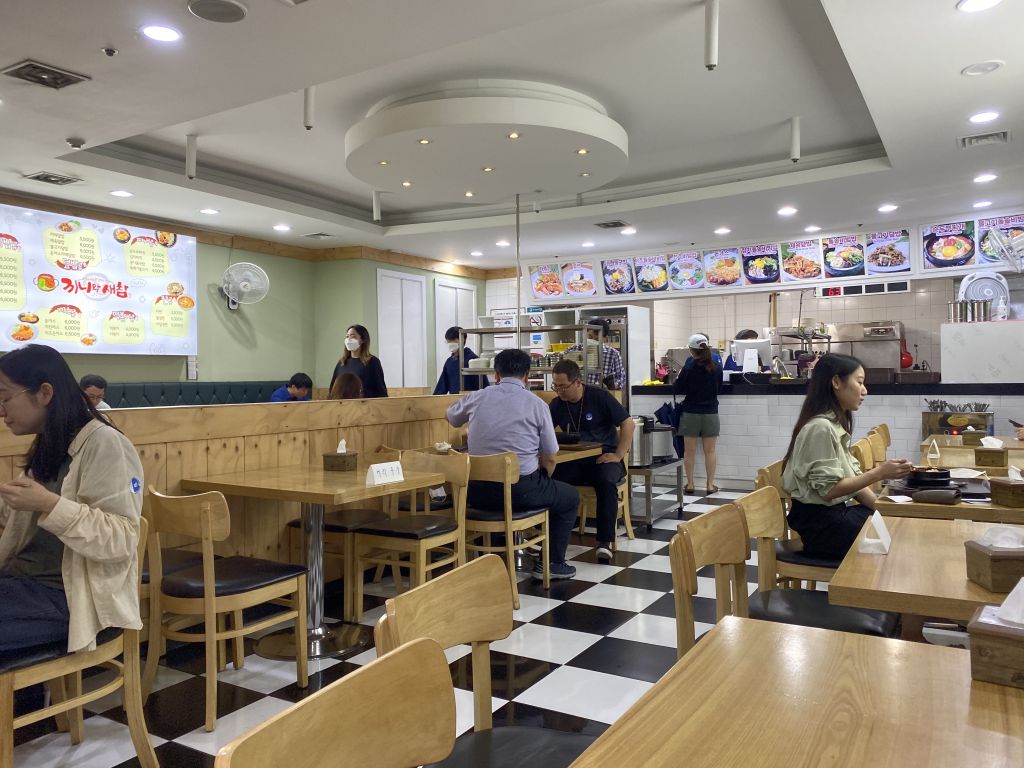
(Photo by Frederikke Viltoft Mygind)
I have learned a few Korean words to be able to communicate a little bit in order to get by, as the most common response to “Do you speak English?” is a nervous head shake. However, everyone is still very helpful and instead they type their Korean response into Google Translate and show it to us in English.
In Korea, eating out is actually a lot cheaper than buying and cooking food yourself unless you want to only eat ramen noodles. Therefore, we eat out every day for both lunch and dinner but to avoid coming home looking like a rice cake or fried pork cutlet, we eat oatmeal for breakfast. Eating out has also become a very nice and social thing to look forward to on days when we have many lectures.
Every day, we eat lunch in one of the school cafeterias where we are working our way through the entire menu selection. Sometimes the outcome is better than others, but there are always delicious all-you-can-eat free sides dishes available, such as fish cakes, kimchi, seaweed salad, yellow kimchi, corn & mayo salat, and marinated potatoes.
One of the most helpful words that I have learned so far, apart from hello, thank you, and excuse me, is Soya sauce (간장/ganjang). Korean food contains hardly any salt, which for my Danish taste buds is sometimes needed – especially for Gimbap, which is a sort of Korean version of sushi.
However, we have now made friends with one of the women who works at the cafeteria and when she sees us she automatically gives us soya sauce – a major accomplishment in getting fully integrated at the university.

(Photo by Frederikke Viltoft Mygind)
We have really been making the most of the fact that we don’t have any classes on Fridays and late classes on Mondays by traveling the country a bit. We have gone on two extended weekend trips in the past two weeks. Last weekend, 11 of us went to Jeju Island, which is a vacation island located southwest of the Korean mainland. We took a plane late Thursday and were back early Monday morning, which cost only 17$ for the roundtrip.
At Jeju Island, we saw several beautiful waterfalls, volcanic cliffs, the remains of a huge volcanic crater, the beautiful beaches, and took a day trip to Udo Island where we spent the day exploring the island on electric bikes. This weekend, three other girls and I took a trip to Yangyang, which is by the seaside on the east side of Korea 175km from Seoul. Yangyang is located close to a famous national park and amazing surf beaches.
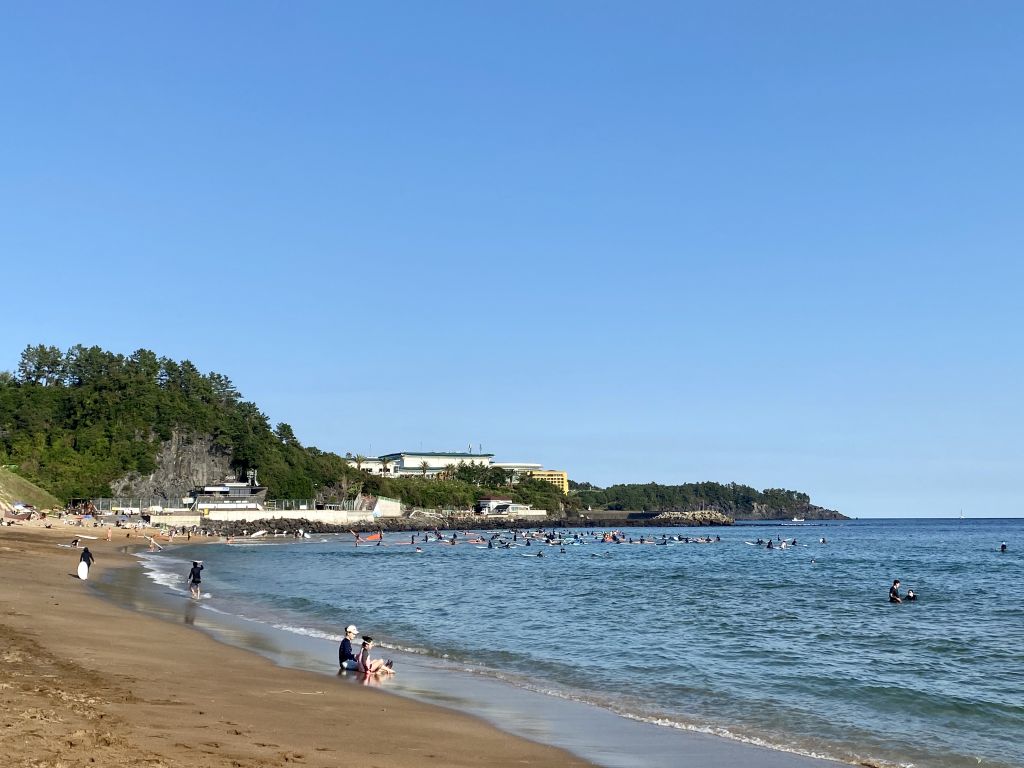
(Photo by Frederikke Viltoft Mygind)
The first day we went to the Seoraksan National Park, where we took a cable car as far as possible and hiked further to the top to see the amazing view even in the fog. The next day, the weather was much better, so we decided to spend the day on the beach. In the coming days, during Chuseok, we are planning to go to a big amusement park, hike the city wall, see all the flowers now blooming in the Olympic Park, and start studying for the mid-term exams.
I am very excited to see Seoul and all its beautiful nature in autumn colors but, for the moment, I am enjoying still being able to walk around in summer dresses and Birkenstocks.
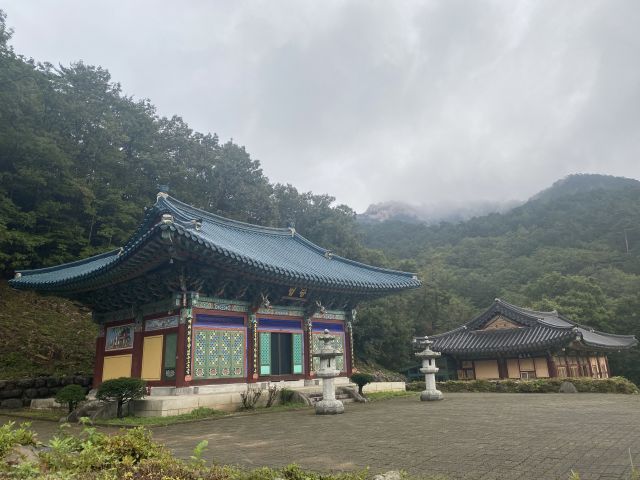




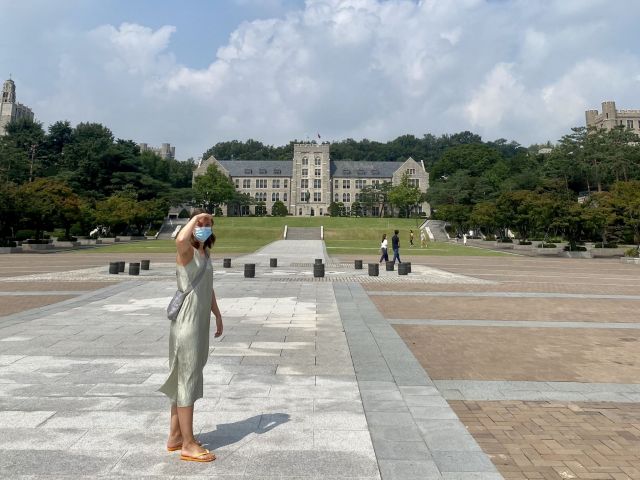
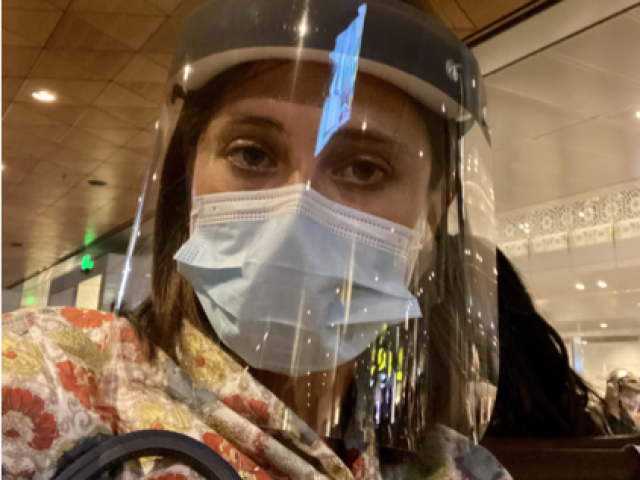

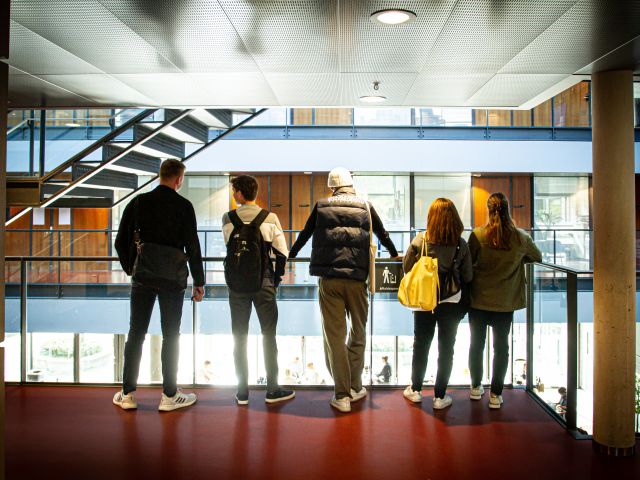





























































































































Comments